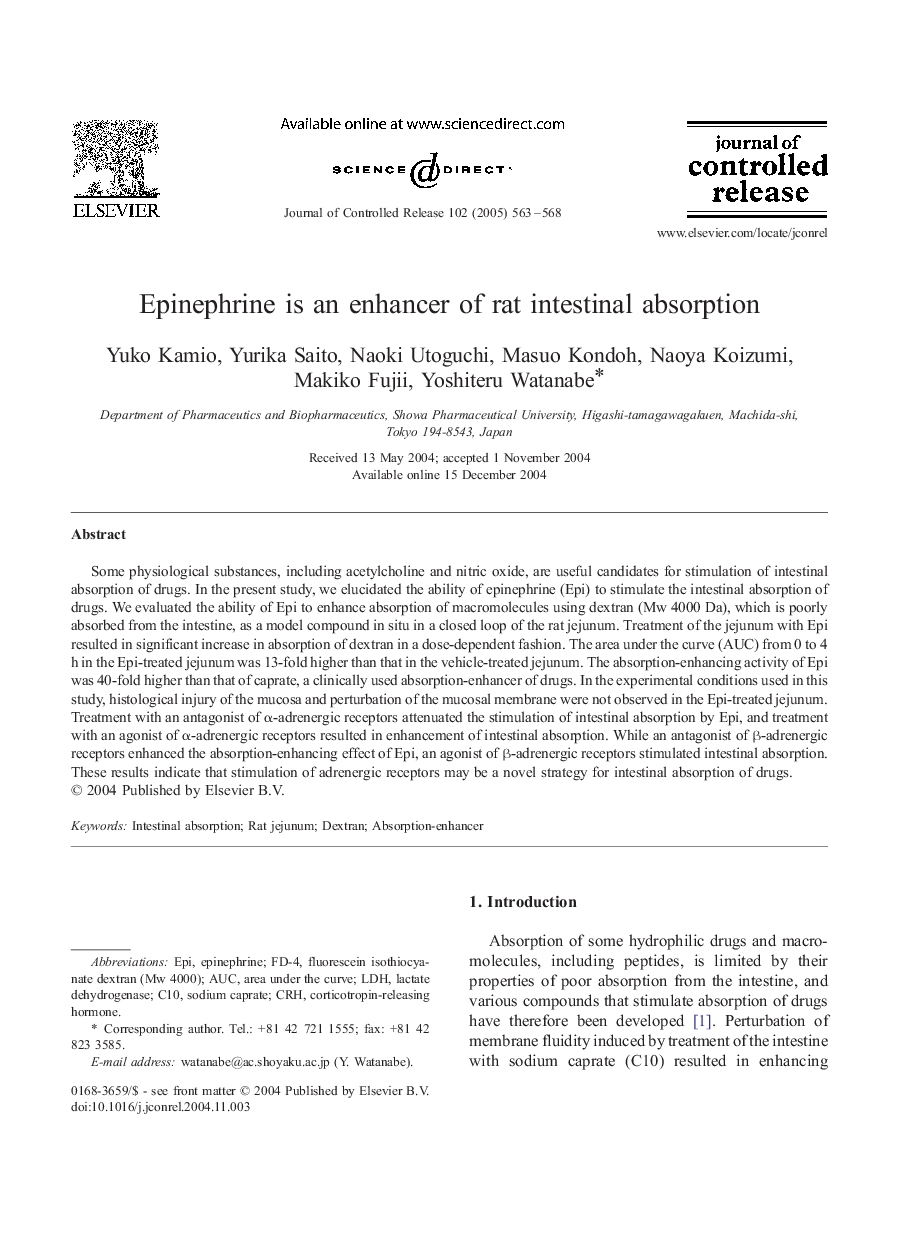| Article ID | Journal | Published Year | Pages | File Type |
|---|---|---|---|---|
| 10613448 | Journal of Controlled Release | 2005 | 6 Pages |
Abstract
Some physiological substances, including acetylcholine and nitric oxide, are useful candidates for stimulation of intestinal absorption of drugs. In the present study, we elucidated the ability of epinephrine (Epi) to stimulate the intestinal absorption of drugs. We evaluated the ability of Epi to enhance absorption of macromolecules using dextran (Mw 4000 Da), which is poorly absorbed from the intestine, as a model compound in situ in a closed loop of the rat jejunum. Treatment of the jejunum with Epi resulted in significant increase in absorption of dextran in a dose-dependent fashion. The area under the curve (AUC) from 0 to 4 h in the Epi-treated jejunum was 13-fold higher than that in the vehicle-treated jejunum. The absorption-enhancing activity of Epi was 40-fold higher than that of caprate, a clinically used absorption-enhancer of drugs. In the experimental conditions used in this study, histological injury of the mucosa and perturbation of the mucosal membrane were not observed in the Epi-treated jejunum. Treatment with an antagonist of α-adrenergic receptors attenuated the stimulation of intestinal absorption by Epi, and treatment with an agonist of α-adrenergic receptors resulted in enhancement of intestinal absorption. While an antagonist of β-adrenergic receptors enhanced the absorption-enhancing effect of Epi, an agonist of β-adrenergic receptors stimulated intestinal absorption. These results indicate that stimulation of adrenergic receptors may be a novel strategy for intestinal absorption of drugs.
Keywords
Related Topics
Physical Sciences and Engineering
Materials Science
Biomaterials
Authors
Yuko Kamio, Yurika Saito, Naoki Utoguchi, Masuo Kondoh, Naoya Koizumi, Makiko Fujii, Yoshiteru Watanabe,
